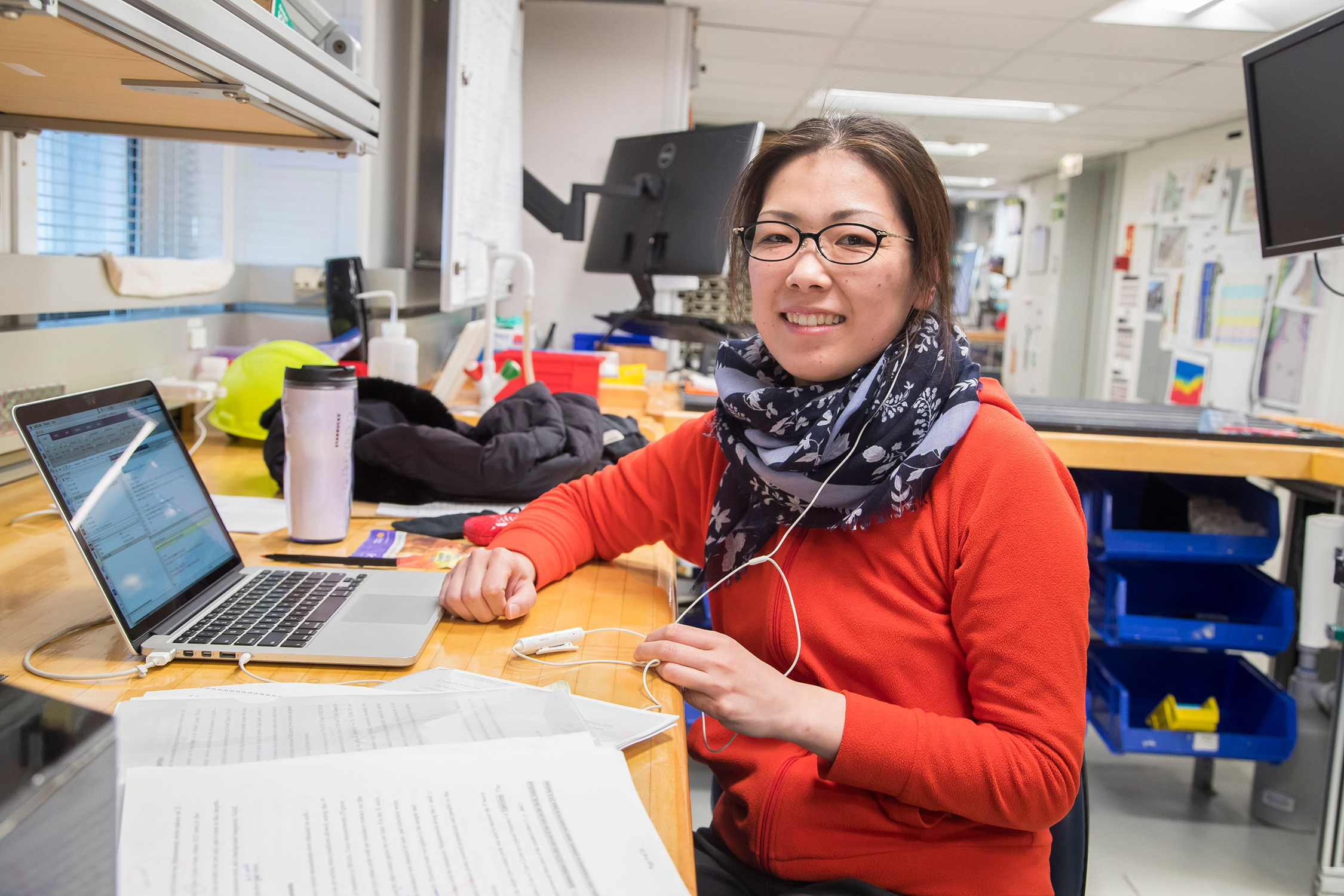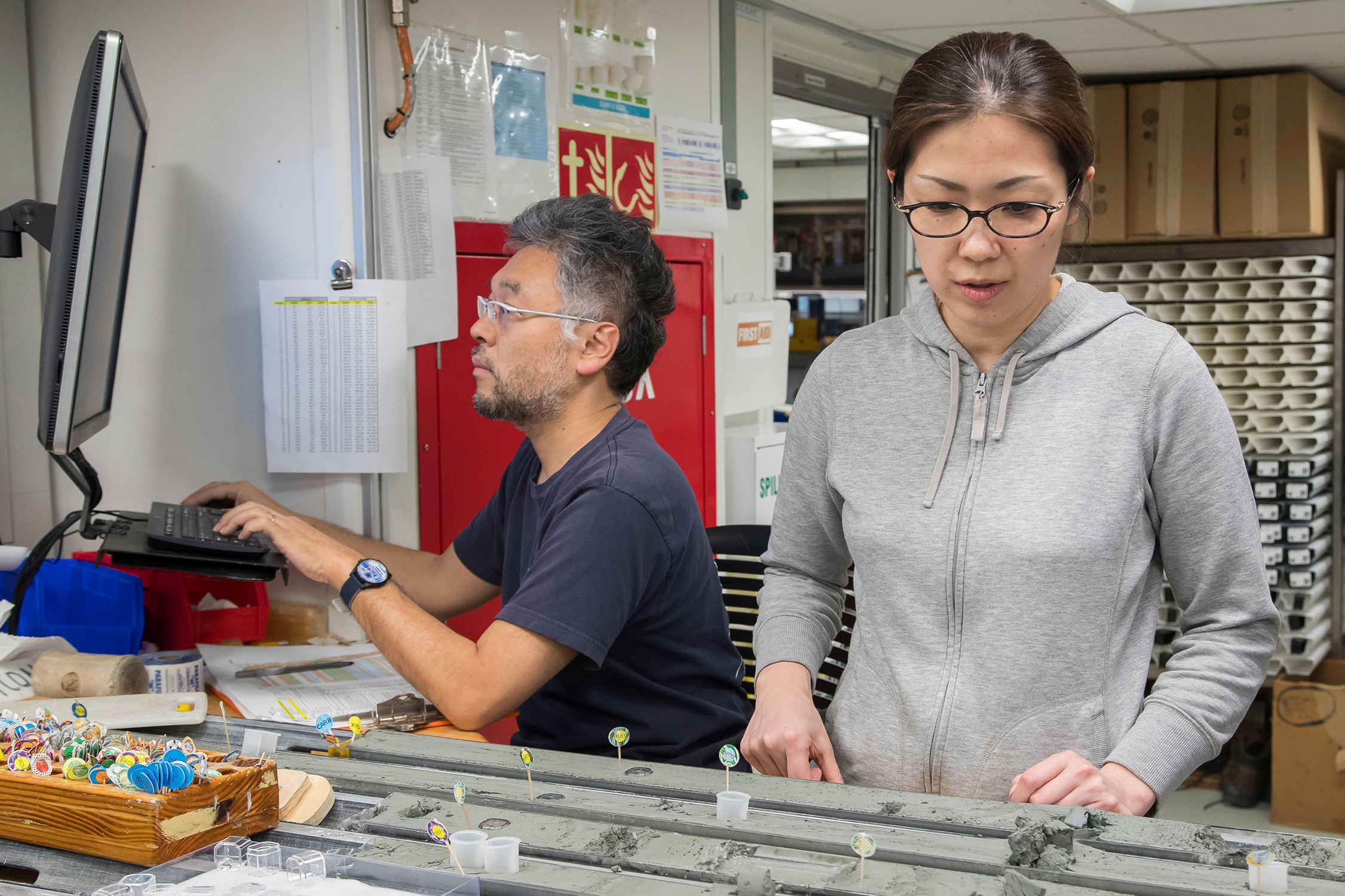
Hiroko Kitajima, associate professor in the Department of Geology and Geophysics at Texas A&M University, has been recognized with the Asahiko Taira International Scientific Ocean Drilling Research Prize for her excellence in scientific discovery and research, specifically in the field of experimental rock and soil mechanics.
Funded by the Integrated Ocean Drilling Program Management International and jointly sponsored by the American Geophysical Union and the Japan Geophysical Union, the Taira Prize is awarded annually to an outstanding individual who is within 15 years of receiving their Ph.D. and has made significant contributions to the field of ocean drilling.
Kitajima, who earned her Ph.D. in geology from Texas A&M in 2010, joined the Texas A&M faculty in 2014 after a two-year stint as a research scientist with the Geological Survey of Japan. In between, she completed a two-year National Science Foundation-MARGINS/GeoPRISMS Postdoctoral Fellowship at Pennsylvania State University (2010-2012).

A 2021 Texas A&M Presidential Impact Fellow, Kitajima holds the Francesco Paolo de Gangi/Heep Endowed Professorship in Theoretical Geophysics and is a member of the Center for Tectonophysics.
Kitajima’s research focuses on the micromechanics of shear deformation and compaction as well as the interaction of fluid flow, rock and sediment deformation, particularly under loading conditions affiliated with earthquakes in subduction zones. She has sailed on the JOIDES Resolution on three previous International Ocean Discovery Program expeditions as part of a decade-long IODP project, the Nankai Trough Seismogenic Zone Experiment (NanTroSEIZE) as well as aboard the Chikyu at the Japan Agency for Marine-Earth Science and Technology (JAMSTEC).
“My endeavor to understand the mechanics of earthquakes, particularly in subduction zones, initiated when I came to Texas A&M University for my graduate study,” Kitajima said in response to receiving the prize. “Conducting experimental rock deformation research using ocean drilling cores was one of the reasons why I chose Texas A&M.”

Kitajima's honors to date include several fellowships and a 2019 NSF Faculty Early Career Development (CAREER) Award supporting her research that involves replicating the temperatures and pressure conditions present in Japan’s subduction zones using IODP samples in an effort to better predict earthquakes for mitigation purposes.
“I am greatly honored to receive the Asahiko Taira International Scientific Ocean Drilling Research Prize,” Kitajima said. “I would like to give a special thanks to Harold Tobin for his kind citation as well as his mentorship for many years. I am grateful for the support from the ship operational offices for the JOIDES Resolution at IODP-TAMU and for Chikyu at the Japan Agency for Marine-Earth Science and Technology. Without their support, none of the scientific ocean drilling research would have been possible.”
Kitajima was presented with the award at the AGU Fall Meeting, held Dec. 12-16 in Chicago.
